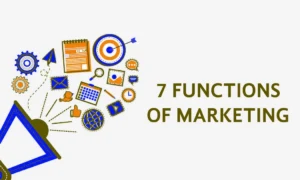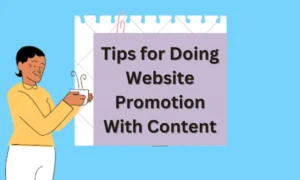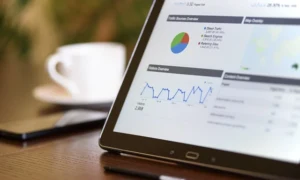Real estate SEO is the number one way to automate lead generation, get traffic and get Google to do your real estate marketing work for you.
Research has shown that 95% of home buyers start their home buying journey online. For an agent or realtor, this means making sure your real estate website is up-to-date and optimized for SEO.
The most successful real estate agent is not the one who knows how to find clients, but the one who gives clients more ways to find them. This is where real estate SEO comes into play.
We know that not every real estate agent is a natural SEO master. That is why we offer you this article. After reading it, you will learn what all this crap is SEO and how to use it to your advantage when marketing your real estate business.
What is SEO in real estate?
SEO stands for search engine optimization. This acronym refers to the process of maximizing the number of visitors to a particular website by ensuring that the site ranks high in the list of search engine results.
For real estate agents, this means appearing at the top of Google and other search engine results when people are looking for someone to help them buy or sell real estate.
Think about how you search for information on Google. You enter your search query and most likely click on one of the first three or four results. Your potential consumers act the same way when searching for housing.
In order for your page to rank among the top results, you need to do targeted SEO work when creating community pages, blog posts, and landing pages.
Real Estate SEO Tips
Search Engine Optimization can be very stressful, and you may never be able to rank every real estate firm on Google. The good news is that it doesn’t have to be your story. You only need to rank for SEO in your region (local SEO).
Here are some helpful tips you can implement to make sure you’re more competitive in the eyes of search engines, buyers and sellers.
Conduct Keyword Research
Keywords are at the center of SEO strategy. Many of the tactics you’ll see in this article depend on knowing which local keywords to use. This includes not only inserting general keywords like “real estate in Ohio” but also addressing what your audience is specifically looking for.
Keywords will tell you what content to publish on your site. Think about what buyers in your area are looking for and make sure your site has relevant pages that will lead them to you. Your keywords should always be relevant to the needs of the local market and appear on various pages of your site, including:
• Blog Posts
• Landing pages
• About Me/Biography Page
• Site pages
• Page titles
• Meta descriptions
• Alt tags (for images or photos)
Remember to use different keywords for each page because you don’t want to compete with yourself.
Here are two categories of keywords to consider.
- Broad keywords: These are the keywords you optimize for your main pages, such as your about us page and home page. They include simple keywords such as “buy an apartment in Ohio” or “real estate in Ohio”
- Long tail keywords (LSI): These are the keywords that define the content of your blog. They include answers to questions that home buyers in your area may have. For example, “buy an apartment from the owner without intermediaries in Ohio” or even “how much do I need to save before buying an apartment.”
User intent
A few years ago, Google moved to a user intent format (search intent or query intent), and now Google can use all the information it knows about a person, combined with the terms they search for, to return unique search results.
For example, someone might search for “apartments in Ohio” and Google knows that this person is a single mother, does CrossFit and is looking for an apartment within walking distance of the Ohio City. If you create a convenient table or page on the website called “One-room apartments within walking distance from Beavercreek” with good content, you can successfully rank for this query.
Don’t overuse keywords
Keywords are like your favorite dessert—you may be tempted to stuff your site with them as much as possible, but moderation is always best. Google penalizes sites for keyword over-optimization (too many keywords placed unnaturally to cheat your way to ranking).
However, given that your keywords should be directly related to the topic of your page, weaving a keyword into the text shouldn’t be too difficult. Try not to over think it, the content of your page should seem natural to your visitors (and Google).Tip: The best way to judge how natural something sounds is to read it out loud to you. If it sounds strange or unnatural when you read it, chances are your website visitors will feel the same way.
Make sure your site is mobile compatible
If you started your real estate business a long time ago, you may not have paid attention to the need for a website to be compatible with mobile devices. However, research shows that more than 50% of web traffic comes from mobile devices. Google has caught on to this trend and is now using mobile compatibility as a ranking factor.
Find your site on a mobile device and see how it behaves. Make sure it loads quickly and is easy to use. If not, make the appropriate changes.
There are options available, such as making a responsive website that works well on desktop and mobile computers. Regardless of how you plan to make these changes, it is imperative that you do so. If a mobile user goes to your site and finds that it is not mobile friendly, they will move on to another site within 3 minutes.
Improve your website speed
Internet users have a very short threshold of patience. Just as people work on sites that are not mobile friendly, mobile users love sites that take just a second to load. If your site is not fast enough, many of your visitors will leave your site as soon as they click on it, and you will lose that traffic.
This bounce rate sends a signal to Google that people aren’t finding what they’re looking for on your site. Since user satisfaction is determined by Google’s algorithms, it can affect your ranking.
To make your site load faster, here are a few steps you can take:
• Choose the right hosting provider;
• Compress images;
• Enable browser caching;
• Reduce the number of plugins you use.
• Use internal linking
Internal links are another key component of real estate SEO. Placing backlinks on your site allows you to keep older posts fresh and helps Google find your posts. This increases your SEO weight and keeps visitors on your site longer, which can lead to purchases, and also improves your ranking in search results. There are two types of links that you should use in your website content:
- Links to other relevant sites: These links help your readers find more relevant information, making you a trusted source they will return to. These backlinks also give search engines a chance to find your own blog posts.
- Links to posts on your own site: These links will allow you to keep old blog posts and pages popular. As you create each new page, think about where you can insert a link to an older but still related page on your site.
There are many places on your site to add backlinks, but the best places to insert these links are on site pages and blog posts.
Website/blog pages
- Site pages are an easy way to place backlinks on your site, specifically links to your other pages. For example, if you have a page for the Beavercreek area in Ohio, there is several famous nearby areas for which you can create pages and show links to them. This provides more information to the home buyer and keeps visitors on your page.
- Blog posts provide a wider range of backlinks that you can use. The topics of your posts can range from first-time home buyers to real estate and everything in between. Find keywords and phrases to link to other relevant pages. If you can find places to naturally link to old blog posts, even better!
Tip: Google and other search engines love to see statistics and facts in online content. Using these facts is an easy way to include credible backlinks to your real estate website.
Submit your site to review sites and related directories
Make an effort to have a profile on popular sites such as Google My Business. Also create profiles on real estate directory sites. Be sure to check for local real estate listing sites. The more local sites you have, the more likely Google is to find you and make sure you’re trustworthy.
These sites give you the opportunity to earn a backlink, which is important for your ranking, and increase the number of places your customers can find you online.
Make sure you format your information in the same style across all ads. This will help search engines understand that the ads belong to the same business. For example, if your business is located in Ohio, avoid indicating Ohio in one ad and Ohio time in another.
Invest in good photos for your website
While good reviews and good content can bring home buyers to your site, the emotional connection they make with your photos is what drives the sale.
Your real estate website will convert more visitors into buyers if it contains high-quality photos. Since Google sees photos in a certain way, be sure to add optimized alt tags so they play a role in the ranking factor.
Video content
If possible, go all out and add video content. This could be a video you’ve created from blog articles, a video tour of a new property, or even a video in which you share current statistics from the real estate industry.
Having written, photo and video content on your site allows Google to find you not only by one, but also by several criteria. Videos may be easier to rank on Google than blog articles, and those are the views you don’t want to miss out on.
Similar to photo tags, be sure to use optimized keywords in alt tags and for videos.
Promote your content on social networks
In smaller cities, great real estate SEO puts you ahead. However, if competition is tough, sharing your content can improve your chances of driving more traffic to your site.
Your current and potential clients are on social networks
By sharing your content on social media, you give it a better chance of being seen and give search engines like Google and Bing a few more sites to find you on.
It doesn’t have to be completely new content! There are several ways to use existing content to create graphics, videos, and testimonials to post.
Want to learn more about real estate SEO?
Optimizing your content for real estate SEO will ensure that your clients can easily find you. Having great content and answering customer questions establishes you as a leader in the real estate industry in your area, which builds trust in your brand.






































